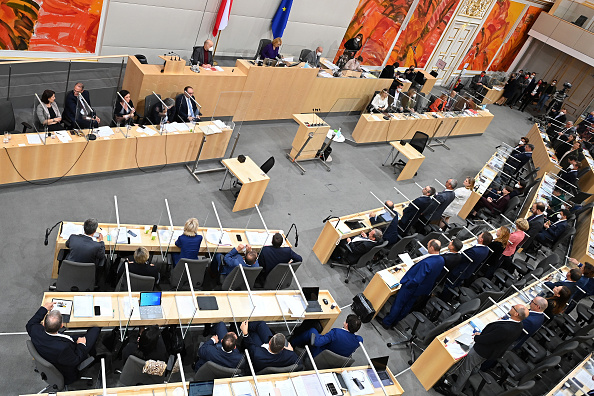The European Union’s proposed Migration Pact looks set to fail in a key vote at a meeting of the EU Council of ministers on June 8, according to a source with Council insight.
The revelations fly in the face of Presidency and European Commission expressions of confidence that an agreement will be reached when the Ministers of the EU’s Member States convene in Luxembourg.
Meeting notes seen by Brussels Signal indicate that the Presidency is currently only counting on three nations out 27 to vote yes. The source told Brussels Signal that the Swedish government has already started scheduling future meetings on the legislation, in anticipation of this week’s vote failure.
As of writing, neither the Swedish EU Presidency or Sweden’s government have commented.
The government, in taking over the rotating Presidency of the Council of the EU, has made the successful implementation of the Migration Pact a top priority. EU institutions are unanimous in saying they want the pact to be finalised before 2024 European elections.
Speaking at a press conference on June 7, Commissioner Ylva Johansson said she was confident Member States would be able to reach a compromise.
However, the source said only Estonia, Germany, and Sanna Marin’s Finnish caretaker government were sure to vote yes on the Migration Pact’s implementation.
The quick finalisation of the pact is seen as especially pressing as Europe faces a new migration wave, with Italy recording high levels of arrivals, a situation set to be compounded by the outbreak of civil war in Sudan.
While the Migration Pact consists of nine separate pieces of legislation concerning the issues of mass migration, only two will be up for debate and possible approval this week. These are the Regulation for Asylum and Migration Management, and the Amended Asylum Procedures Regulation.
Officials at both the EU Council and European Parliament describe both pieces as cornerstones of the pact.
Among many of the reforms and provisions contained in these proposed regulations are considerable amendments to the Dublin Regulation – which says that asylum seekers must apply for asylum to remain in the first EU country they arrive in. An EU official said the amendments will, in effect, soften the regulation, allowing asylum seekers to move across EU countries on the basis of education, family ties, and so forth.
Another key change will be the creation of the Solidarity Mechanism, which will effectively mean that Member States that refuse to accept migrant relocations will be fined €22,000 per migrant. Some have termed this proposed move as ‘migrant relocation by the back door’ and it is one of the pact’s most controversial aspects among Member States.
Indeed, some believe several provisions within the Migration Pact could target the Swedish Government itself. In April the nationalist Sweden Democrats threatened to withdraw support for the government over the issue.
And it may now prove to be a stumbling block too many, according to our source.
If the Migration Pact vote fails this week, it could prolong its finalisation by several months. Even if the pact is finally approved by the Council, the Council and the EU Parliament will have to enter into long inter-institutional negotiations.





